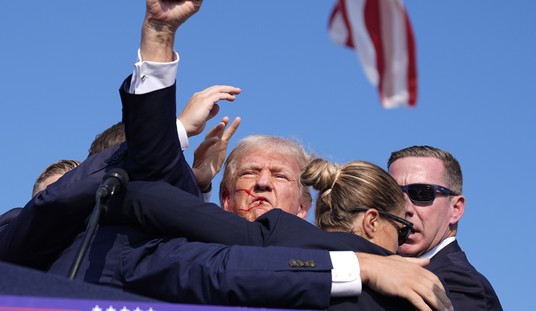“$15 was a crazy dream. Now it is reality,” Bill Lipton, the director of the New York Working Families Party, tweeted June 22 shortly after the New York’s Fast Food Wage Board recommended increasing the state’s minimum wage for fast-food workers.
Heather Briccetti, the president and CEO of the Business Council of New York State, and Melissa Fleischut, the executive director the New York State Restaurant Association, said Lipton’s dream is close to being their worst nightmare.
The proposal approved by the wage board would boost the minimum wage paid to fast-food workers in New York City, incrementally, to $15 an hour on Dec. 31, 2018. Fast-food employees in the rest of the state of New York would see $15 an hour on their paychecks by July 1, 2021.
The minimum wage in the state of New York is $8.75 and was scheduled to go up to $9 at the end of 2015.
“The recommendation by the Fast Food Wage Board may momentarily appease the advocates, but it is contrary to the need for long-term job growth in New York State and goes against the notion that New York is ‘open for business,’” said Briccetti.
Also read
The 10 Best Deals in Fast Food
The 10 Most Irritating Fast Food Items You Must Avoid
“Increasing the cost of jobs is counter-productive to actual job creation. This action will lead to increased prices, encourage more automation, and – in the worst case scenario – may force businesses to close,” she added. “What we need is to enact policies that promote real economic growth, especially in the 26 upstate counties that have yet to regain the jobs they lost during the Great Recession.”
Briccetti also argued that if the state legislature had handled this, as it has done nearly two dozen times previously, the legislature could have approved concessions to the fast-food industry that would have cushioned the impact of the wage hike.
The Fast Food Wage Board’s decision would only apply to fast-food restaurant chains with at least 30 outlets. Fast-food service is defined as a restaurant where food and drinks are served at counters, and customers pay before taking the food to a table.
But Briccetti warned in testimony before the Fast Food Wage Board in June she was afraid a decision in favor of a $15 minimum wage “would serve as a template for future wage board action.”
Fleischut said it was unfair that one sector of the restaurant industry should be singled out for the minimum wage increase. Beyond that, she accused the wage board of seeking “to silence the business community and force through an unfair and discriminatory increase on a single sector of one industry.”
“From stacking the board with supporters of an increase to allowing business owners to get booed and heckled at public hearings the governor has rigged the game at every turn. Since the governor used a process that rejects compromise the result is an extremist policy that will force business owners in this low profit margin industry to cut hours, lay off employees and use technology to help offset skyrocketing labor costs.”
New York Gov. Andrew Cuomo (D) celebrated the minimum wage hike shortly after it was announced. He said it was “one of the really great days of my administration” — and, just as Briccetti warned, he said the wage board’s decision should seen as a harbinger of bigger paychecks for everyone earning the minimum wage.
“This is not the ending; it is just the beginning because we will not stop until we reach true economic justice and we raise the minimum wage for every worker in every job in this state,” said Cuomo.
Cuomo paraphrased President Franklin Roosevelt when he told the crowd a minimum wage “was not meant to allow you to just subsist, but to live a decent life.”
The New York state labor commissioner will have to review the board’s decision, but Cuomo said he had no doubt it would be approved.
Cuomo might not have to use his political skills to push through the next minimum wage hike. Market pressure might force the business community’s hand on raising wages because of the Fast Food Wage Board decision.
“It will likely put pressure on employers in other industries to raise wages in order to compete for workers,” Irene Tung, a policy researcher for the National Employment Law Project, told the New York Times.
“It would be very attractive for somebody working at the Gap, making around $9 an hour, to look across the street and see Chipotle paying $2 or $3 or $4 more and decide that they would rather work at Chipotle,” she said.
Cuomo also said this bump to $15 an hour for fast-food workers would not only spark a trend in the state of New York. He predicted America would soon follow suit.
“Because when New York acts, the rest of the states follow. That is the New York way,” said Cuomo.
“And this statement today is going to radiate all across the country,” Cuomo said. “If New York can do it, why can’t you do it? And if it’s right in New York, it’s right in California and it’s right in Michigan and it’s right in Florida.”
Not to slight Gov. Cuomo’s ego, but it is already happening across America.
The Los Angeles County Board of Supervisors beat the New York Fast Food Wage Board to the punch by a day. The county supervisors on June 21 approved a proposal to raise the L.A. County minimum wage, across the board, to $15 an hour. That matches the $15 an hour minimum wage approved by the Los Angeles City Council in June.
A $15 an hour minimum wage has also been approved in Seattle and San Francisco.
That increase in pay might woo an employee from the Gap to Chipotle, as Irene Tung said, but it also means those minimum wage workers feeling flush earning $15 an hour are going to pay more for a burrito at Chipotle.
Chris Arnold, a spokesman for the fast-food chain, told Slate the price of everything on the menu at Chipotle’s San Francisco restaurants went up 10 percent following a 14 percent minimum wage increase.
“California, and San Francisco, in particular, have a high cost of doing business,” Arnold said.
“In San Francisco, for example, our occupancy costs are about double the Chipotle average as a percentage of sales, and our menu prices there are right around the average for Chipotle restaurants around the country, so increases to wages can have a greater impact than they might elsewhere.”
So it’s not a political problem as much as a problem of simple arithmetic, as David French, vice-president of the National Retail Federation, pointed out while debating the Obama administration’s move to change overtime regulations.
“There simply isn’t any magic pot of money that lets employers pay higher wages just because the government says so, without making adjustments elsewhere like cutting workers’ hours, reducing their non-cash fringe benefits, and/or passing the higher wages along to consumers in the form of higher prices.”
–Image: Associated Press










Join the conversation as a VIP Member